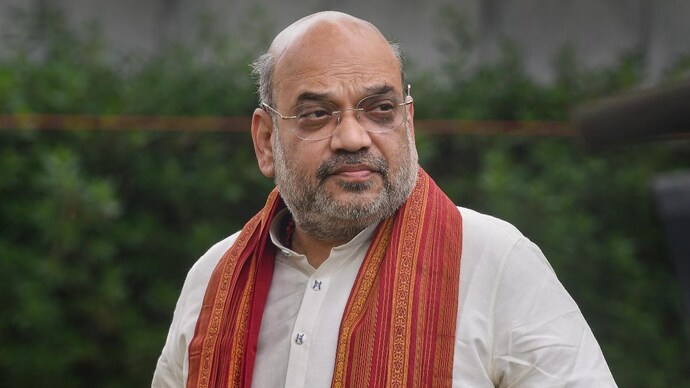- Centre takes 54 initiatives in 27 months to bolster cooperation movement
- Cooperation Minister hails IFFCO’s liquid DAP nano as a revolutionary step towards making India self-reliant in the field of fertilizers

By Jitendra Tiwari
Cooperatives have played an indispensable role in India’s economic and community progress since the pre-Independence era. Their mass participatory character at the grassroots level has instilled a sense of self-dependency among the people at the bottom of the social hierarchy. The Union Home and Cooperation Minister, Amit Shah, with his grassroots connections, strategic aptitude, political influence, administrative expertise, cooperative exposure, and reformist inclinations, is leading the transformation of India’s cooperative sector.
Cooperatives, by aggregating indigenous resources and building self-sustaining networks, have catalyzed financial integration and grassroots empowerment across vital sectors like agriculture, banking, dairy, housing, and artisanal trades. However, over the years, deep-rooted issues have plagued the cooperative system. Excessive political interference, a lack of professionalism, outdated technologies and procedures, and fragmented efforts have hindered the sector’s ability to realize its full socio-economic potential.
To address these issues, Prime Minister Narendra Modi’s administration established a dedicated Ministry of Cooperation in 2021. Even more significantly, the PM entrusted Amit Shah, often referred to as his ‘right-hand man,’ to lead this ministry and bring about a significant transformation of the cooperative ecosystem.
At first, this unexpected move puzzled many observers. However, upon closer examination, it becomes clear that Amit Shah is the ideal leader for this monumental task. Here’s why Amit Shah was the top choice for this important mission.
Grassroots Exposure in Gujarat’s Cooperatives
Amit Shah has a rich history of cooperation with cooperatives, especially in Gujarat, which has one of the most vibrant cooperative sectors in India. During his tenure in Gujarat as a key strategist, the state saw the consolidation of cooperative banks and dairy cooperatives under the BJP’s leadership. As a hands-on administrator, Shah gained firsthand insights into the practicalities of efficiently running cooperatives. This experiential knowledge is invaluable for shaping national policies and regulations that align with the needs and challenges on the ground.
Strategic Acumen of a Visionary Trailblazer
Shah is often referred to as the ‘Chanakya’ of the BJP. As the national president of the party from 2014 to 2019, he played a pivotal role in the BJP’s historic rise to power and its remarkable electoral victories across India. His ability to strategize wisely, untangle organizational complexities, and achieve desired results will be incredibly beneficial as he navigates the complexities of regional cooperative politics. His adept maneuvering skills will be particularly relevant in states like Maharashtra, where cooperatives hold significant political implications.
Bonding with the Grassroots
Cooperatives may appear to be mundane financial and regulatory entities, but their core motivation comes from grassroots participation and social dynamics at the village level. Having led high-intensity political campaigns across rural India, Amit Shah inherently understands community mobilization at the grassroots. This familiarity with India’s socio-economic fabric, exposure to bottom-up mobilization, and expertise in human resource management equip Shah optimally to promote greater localization and increased participation in cooperatives.
Administrative Savvy and Governance Credentials
As Home Minister since 2019, Amit Shah has initiated several bold reforms, including the revocation of Article 370 in Jammu and Kashmir. His strong governance credentials, ability to quickly reconfigure systems, and a track record of achievements are critical to creating a dedicated administrative, legal, and regulatory environment tailored to the cooperative sector. The Modi government’s vision for the new ministry is ‘Sahkar se Samriddhi,’ signifying prosperity through cooperation. Shah’s proven administrative acumen and reform-oriented approach are essential for creating this institutional framework efficiently.
Decisive Leadership and Swift Implementation
While many government initiatives suffer from slow progress, Shah has already injected strong momentum into the fledgling ministry. In just 20 months, the ministry has launched over 20 new schemes and policies to revamp and rationalize cooperative institutions nationwide. This demonstrates Shah’s action-oriented leadership style, swiftly translating vision into action. The rapid rollout of initiatives has increased confidence among stakeholders regarding the ministry’s sincere intent to bring about transformative change.
Inclusion and Collaborative Doctrine
True transformation requires involving all stakeholders and shaping initiatives based on expert input from the field. Shah has established a national-level consultative council comprising cooperative leaders at all levels to advise the ministry on policy reforms. The ministry focuses on strengthening participation and inclusion at the grassroots level, which is the foundation. This emphasis on collaborative policy-making and grassroots orientation further underscores Shah’s reformist background.
Multidimensional Expertise
Shah brings not only political acumen but also multidimensional expertise. He has served as Chairman of the Gujarat State Cooperative Bank, headed the Ahmedabad District Cooperative Bank, and served as a director on the boards of major cooperatives like the Gujarat State Cooperative Marketing Federation. This exposure to the managerial and financial aspects of cooperatives at both the local and state levels provides him with a holistic perspective. He understands not only localized social dynamics but also the overarching governance, regulatory, and operational challenges.
National Outlook and Interstate Considerations
Many cooperatives, especially in banking and dairy, face challenges in expanding beyond their home states due to inconsistent inter-state policies, rules, and political changes. As a national figure who has expanded the BJP’s presence across geographical and cultural boundaries, Shah offers a broader national perspective. His experience can facilitate the integrated expansion of multi-state cooperatives and streamline inter-state operations by addressing disparities between state-level frameworks.
Staunch Political Patronage
By appointing Shah as Minister of Cooperation, Prime Minister Modi has clearly demonstrated the high priority his government places on strengthening the cooperative movement. Shah remains one of PM Modi’s closest confidants and most trusted aides. This gives Shah the authority needed to pioneer bold reforms in a politically delicate sector. The PM’s endorsement also reassures diverse stakeholders of the government’s unwavering commitment to large-scale cooperative reforms.
In conclusion, India’s cooperatives have faced numerous challenges, from outdated practices to conflicts of interest. Transforming this essential sector to unleash its full potential requires dynamic leadership with a nuanced understanding of ground realities. Amit Shah’s appointment as Minister of Cooperation may have initially puzzled observers, but upon closer examination, he emerges as the ideal leader for this critical mission. His grassroots connections, strategic acumen, political influence, administrative expertise, cooperative experience, and reformist inclinations make him the perfect candidate to revitalize and strengthen India’s cooperatives. While tangible outcomes will ultimately be the measure of success, the progress under Shah’s leadership over the past 20 months inspires confidence. By appointing Shah to lead the vital cooperation ministry, the Modi government has made a wise move that could significantly impact India’s socio-economic landscape.
As Amit Shah often emphasizes, cooperatives are the means for the economic development of the 60 percent of the population in India that lacks capital. This unique movement has helped millions of people escape extreme poverty. In the last 27 months, under the leadership of PM Narendra Modi and Cooperation Minister Amit Shah, the central government has undertaken 54 innovative initiatives to make the cooperative movement a solution to the problems arising from poverty.
Amit Shah has high praise for IFFCO’s nano urea innovation, considering it a revolutionary step that can turn Indian agriculture around. It’s undoubtedly a significant milestone in IFFCO’s journey under the dynamic guidance of Managing Director Dr. Uday Shankar Awasthi.
(Writer is the Chairman of All India IFFCO Officers Federation)


